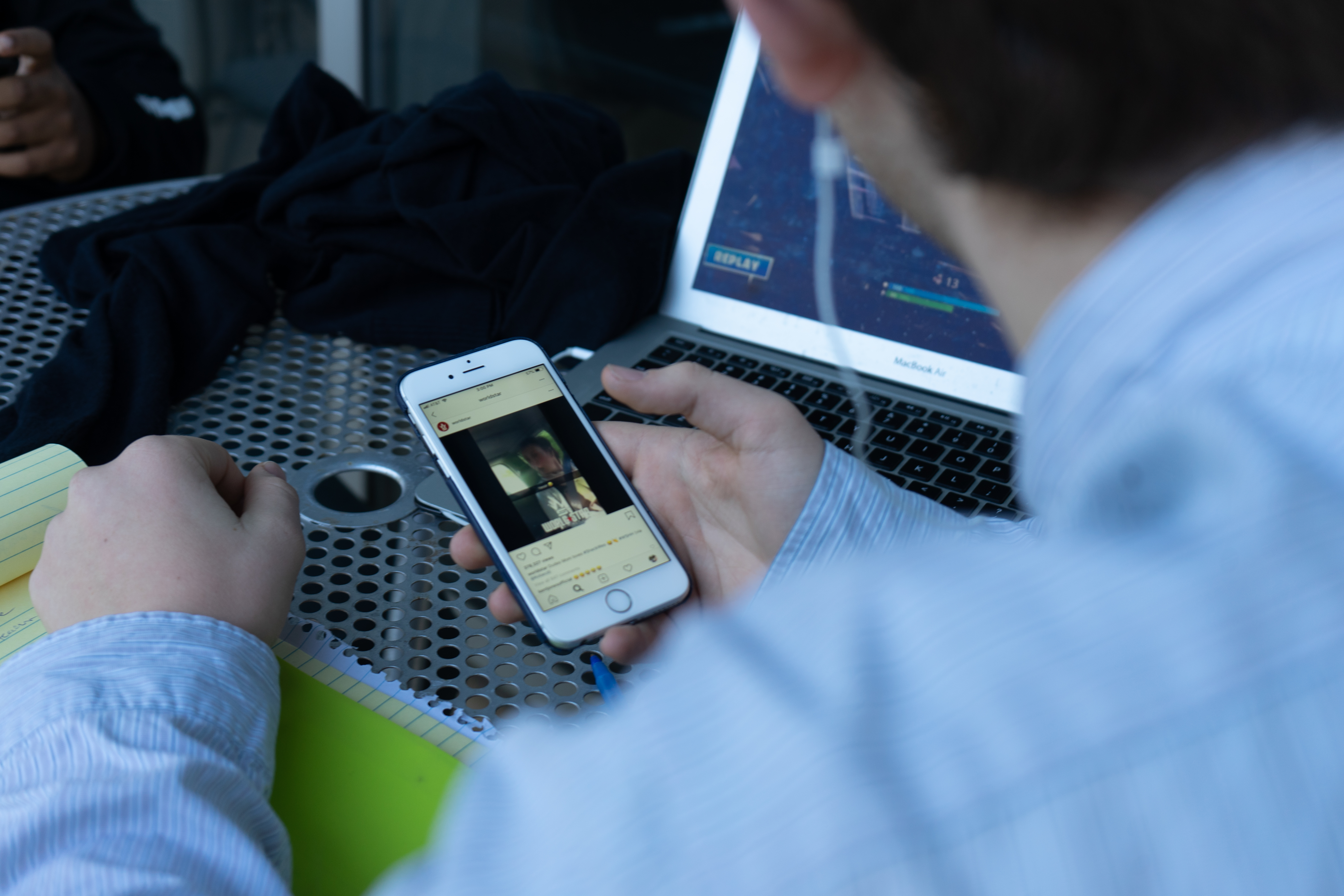A new addiction threatens our way of life: social media. At Lick, as students gather at Caf tables, they seem to be glued to their technological devices. Although the tables are meant for interaction and collaboration, students seem to be avoiding personal interaction. One of the major reasons people stick to their devices is social media, and while it is meant to ease and simplify communication, it may be negatively affecting interactions.
“I got social media to connect with my friends when I am not with them and to see what they are doing,” Rebekka Kivimae ’21 said. She admits, however, that “some people are too used to being on their phones, so face to face contact does not seem natural anymore.” Is social media actually enhancing communication, or does it deviate from serving its purpose?
In a rigorous learning environment, social media is often portrayed as a negative force that distracts students from achieving their full academic potential and developing close friendships.
However, there are reasons that Lick students still cling to their devices. For Sonia Chun ’22, social media is valuable because it enables her to “connect with my friends when I do not see them and get closer to them.” The same goes for Saray Baldizon ’20, who uses social media mostly to keep up with her friends during the summer. Social media allows Nico Karpf ’21 to “bond with others over certain pictures, nostalgia and memes,” which over time, strengthens his relationships. Posting and sharing allows users to relate and connect, which can build positive relationships.
Research studies also show that social media has positive effects on teens in terms of communication. A Pew Research Study found that because of social media, 47 percent of students feel that social media makes them feel more connected to their friends’ lives. A similar Pew Research Study shows that 31 percent of teens described social media’s effect as mostly positive. Of that 31 percent, 40 percent say social media eases their connections with friends and family.
However, there are undeniably negative effects to teen social media usage. On Science Direct, a science and medicine research database, researchers Sebastián Valenzuela, Daniel Halpern and James E. Katz researched the correlation between social media and relationships. They found that when social media is used more often, the quality of relationships declines.
Karpf has seen these negative effects in action at Lick. He said there are instances when “you are hanging out and everyone is on social media, so no one is really talking.” In a sense, people avoid face-to-face interaction by communicating on a device, taking away the genuine side of a conversation. An anonymous student takes this further, saying, “Sometimes I will use social media as an excuse to avoid social situations and that means I do not take chances and make new friends.” The same student says social media may stop them from pursuing new relationships, as they may “judge people off of their profiles and think that I should not hang out with them because of the persona they present on social media.” Adding on to this student’s point, Baldizon said, “people are sometimes really rude to other people on social media,” which hurts relationships and causes social tension.
Students expressed that social media not only affects their personal relationships but also impacts their self-esteem. The anonymous student explained, “social media often gives an unrealistic look into people’s lives which makes me feel bad about my own life.” Karpf related to that saying, “people [who] have more followers are seen as more popular which can affect my self-esteem.”
The dominance of social media comes with both positive and negative impacts, and many have intentions to limit their use to focus on generative aspects of life. Catalina Morales ’21 recently went on a social media cleanse. She felt the online environment was “too toxic” and needed a break from its negative aspects. The focus on Instagram posts and Snapchat stories have prompted apps like Freedom and Moment, which allow people can limit their social media usage.
Given the pros and cons of social media, it is important to find some balance, whether that means going on a “cleanse,” or putting away devices to be more present with friends.






